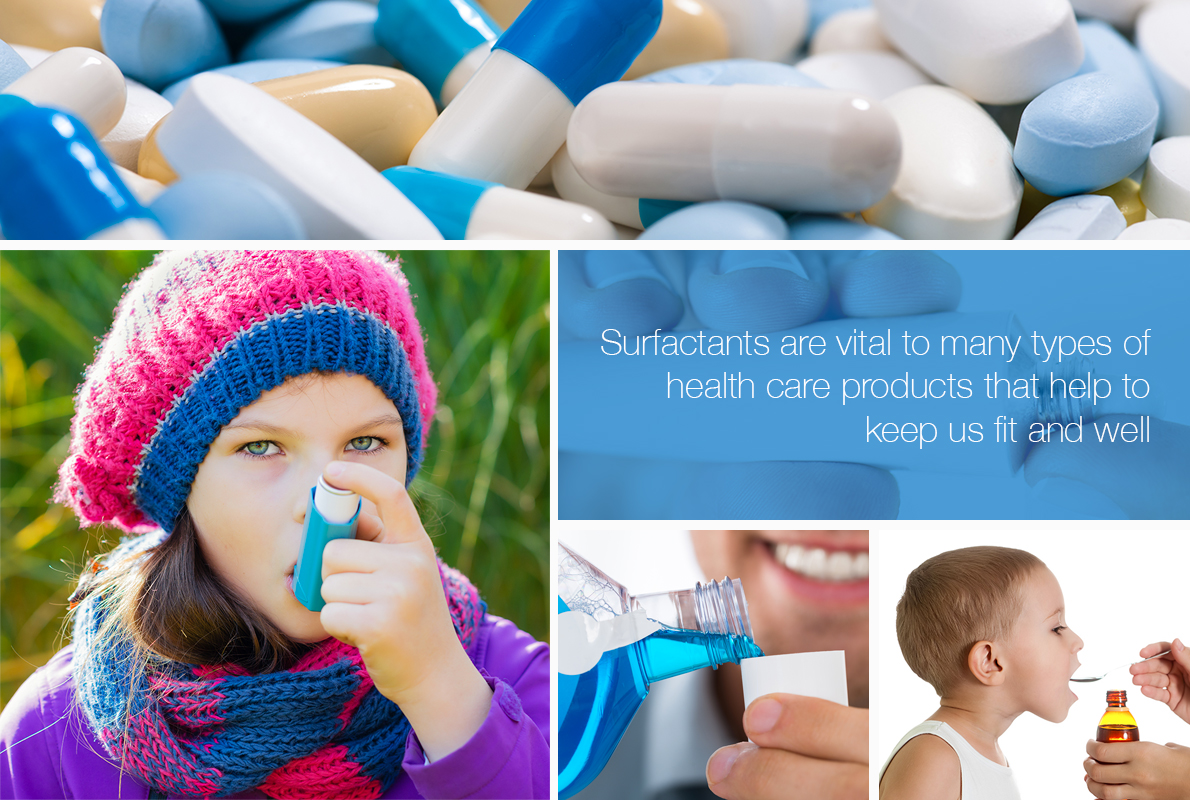
Typical health care products
- Tablets
- Capsules
- Syrups
- Creams
- Ear and eye drops
- Disinfectants
- Inhalers and aerosols
- Mouthwashes
Surfactants are needed for the production of tablets, capsules, creams, lotions, drops, syrups and suppositories. They are also necessary for processing oil-soluble or water-insoluble substances for the production of various forms of pharmaceuticals.
Surfactants are common ingredients in tablet and capsule formulations to improve wetting, solubility and diffusion of the active ingredients. They are also used as lubricants in the manufacture of gelatin capsules and tablets and also to improve the flow of pharmaceutical powders or granules.
In many cases, they have a positive effect on the release of the active substance. The wetting properties of surfactants, for example, are important for tablets as they have to be wetted for the effective dispersion of the active substance in the digestive tract.
In therapeutic or cosmetic mouthwashes, surfactants aid the solubilisation of active ingredients or flavours in the solution and in the removal of debris by providing foaming action. And in creams for external application to skin or mucous membrane they help to keep active ingredients dissolved, suspended or emulsified in an ointment base.
Surfactants are also used to produce homogeneous dispersion of propellant and ingredients in aerosol-based treatments such as inhalers and to emulsify hardened earwax in ear drops.
- See also:
- Home Care
- Personal care

